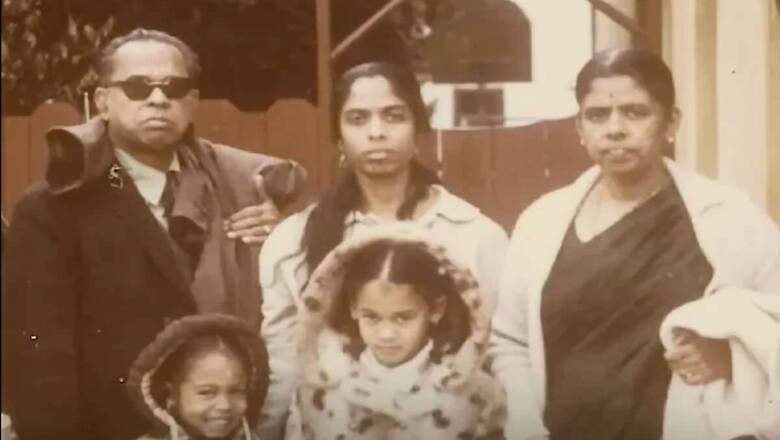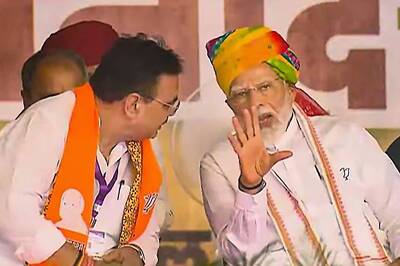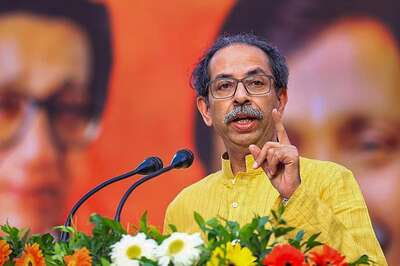
views
There is a high-decibel reaction in southern India to the choice of Kamala Harris as the running mate of Democratic candidate for the United States presidency Joe Biden. Kamala’s mother Shyamala Gopalan, who passed away a few years ago, belonged to the state of Tamil Nadu. Also ‘Kamala’ is an essentially, if not wholly, south Indian name, that resonates with Tamilian chauvinism. Many may remember the famous Bharatanatyam (classical south Indian dance form) artiste Kamala Lakshman, who dominated the field in the 1950s and '60s, and settled down in New Jersey after her dancing days were over. Since then Harris is the first Kamala who has made waves. Many Brahmins looking for excitement, as also some relief from Covid-19 agony and depression, may be expected to keep up the hype for a while.
Harris’s ancestry can be traced to a village in the agricultural district of Thanjavur, south of Chennai. Many Brahmins, the main group from which Hindu priests came, hailed from the district. Harris’s maternal grandfather, the late PV Gopalan, was born in 1911 in a village in Thanjavur. Not much is known about his education. Like many traditional Tamil Brahmins of those days, he seems to have migrated to the capital city of Delhi in search of a job. There was no private sector in those days worth talking about that picked up young men for employment.
In contrast, the central government in Delhi was always warm towards young graduates, especially those from the South, because ‘Madrasis’, as people from this region were generally known, were regarded as mild, obedient and loyal, with a solid knowledge of English, the official language. It was his venturesomeness that persuaded Gopalan to go to distant Delhi, a two nights’ train journey from Madras (now Chennai) by the fabled Grand Trunk Express.
In those days almost every young man — hardly any woman— recruited to what was the Central Secretariat service started as an Assistant in the many departments of government. I can speak with some authority on the subject because my maternal aunt — another Kamala, and no relation of Harris — married an Assistant by the name Rangaswami, belonging to the same elitist group. Each Assistant, unless he was too mediocre or undisciplined, rose up the ladder, and retired as Joint Secretary, a position of some consequence who reported to the Secretary, the highest-ranked civil servant, invariably an Englishman who belonged to the Indian Civil Service (ICS), predecessor to the current Indian Administrative Service (IAS). A few promotees, as the Gopalan tribe were known, got the gift of a foreign posting towards the end of their career. This is how Gopalan went to Zambia as Director of Relief Measures and Refugees. Like all typical south Indian bureaucrats, he had no distraction but concentrated on his job, earning some money and a reputation.
There is no indication as to how long he was in Zambia. But like many of his Tamil colleagues he returned to Madras to savour the joys of visits to the famous local temples and listening to Carnatic music concerts for which Madras has always been known. He bought an apartment in Besant Nagar, overlooking the Bay of Bengal, a locality which came into prominence in the early 1960s and '70s.
This was a settlement which had a predominantly Brahmin population in those days. Besant Nagar was then an unpolluted residential area that became the favourite of retired civil servants. Situated in south Madras it was a haven for middle-class Brahmins. Of course, its character has now changed totally.
Harris talks of her visits to Madras in the 1970s when her grandfather Gopalan was enjoying the balmy morning walks close to the beach. I can well relate to this description of Besant Nagar in the mornings. Harris refers to her grandfather as one of her major influences in her impressionable years. Her description of what the morning beach walkers did and discussed during those walks again resonates with what I used to observe elsewhere in the city.
These walkers developed an unbelievable bond during their sunset years. Of course they were cynical of what was happening around them, both in government and in society. They were convinced that things had deteriorated beyond repair after they left their jobs. Madras was not the same for Harris after Gopalan passed away in 1998, when Harris was in her early 30s.
Harris is sentimental not merely about her Indian upbringing, but about her stately grandfather Gopalan, who had much to offer her by way of knowledge about the country and the world. I strongly believe Harris has inherited a number of qualities from her grandfather who was not a frog in the well but was enterprising to go to a troubled continent such as Africa, and did not wilt under the local harsh conditions of living. It is possible she acquired his grit and determination to reach the heights she has now climbed.
(The author is a former Director of the Central Bureau of Investigation, and was until last year India’s High Commissioner to Cyprus. He was a Visiting Fellow at Harvard Law School and at Rutgers, after graduating in criminal justice from Temple University, Philadelphia. Views expressed are personal.)




















Comments
0 comment